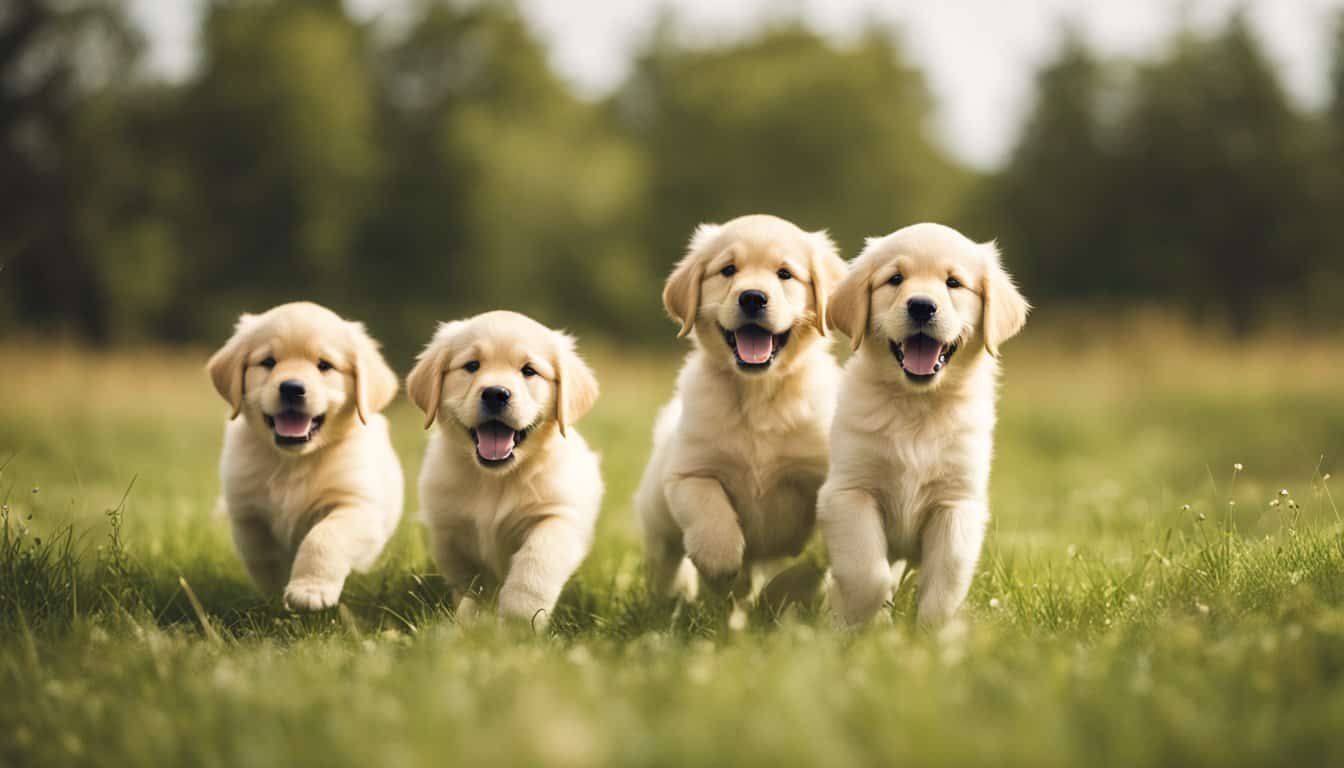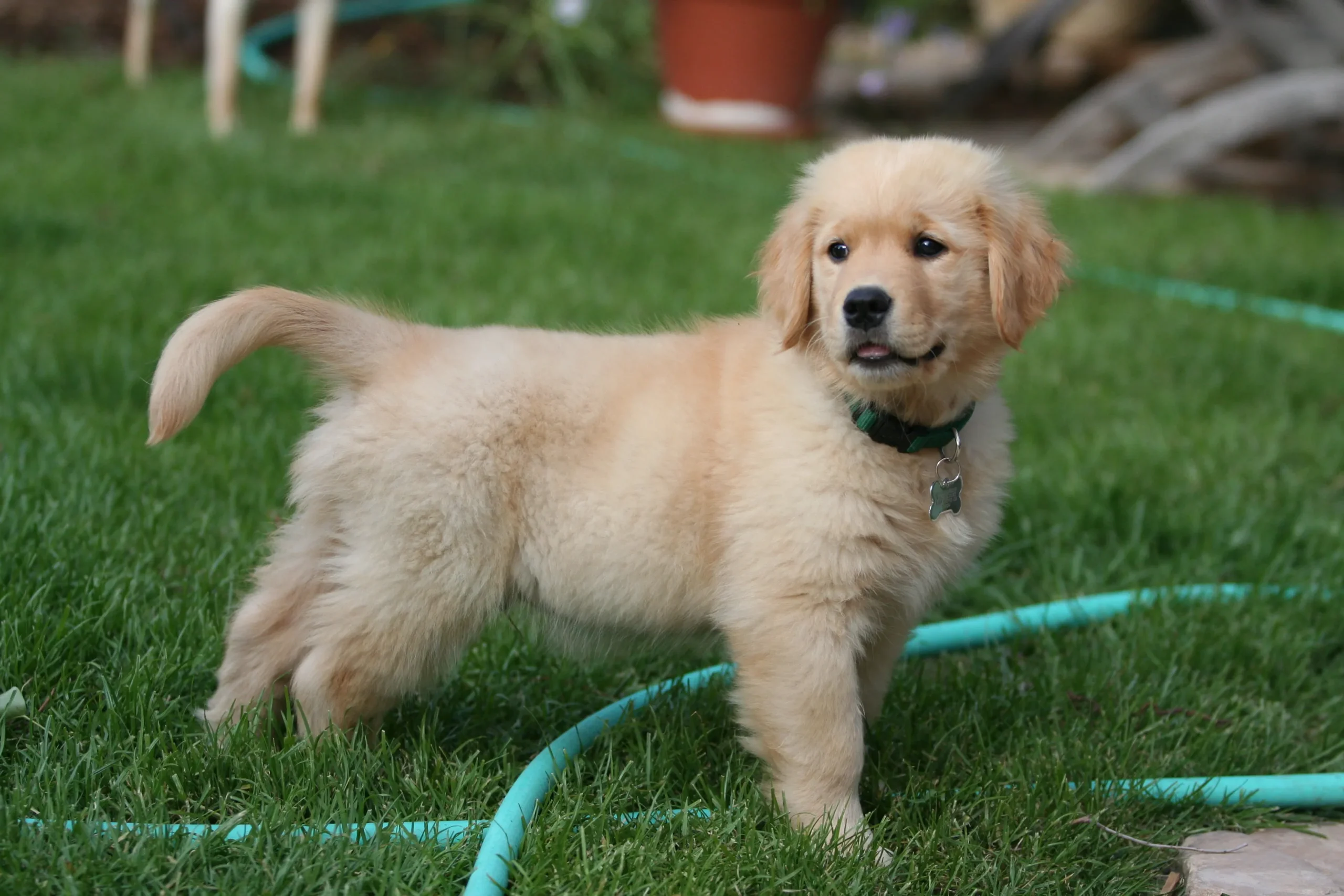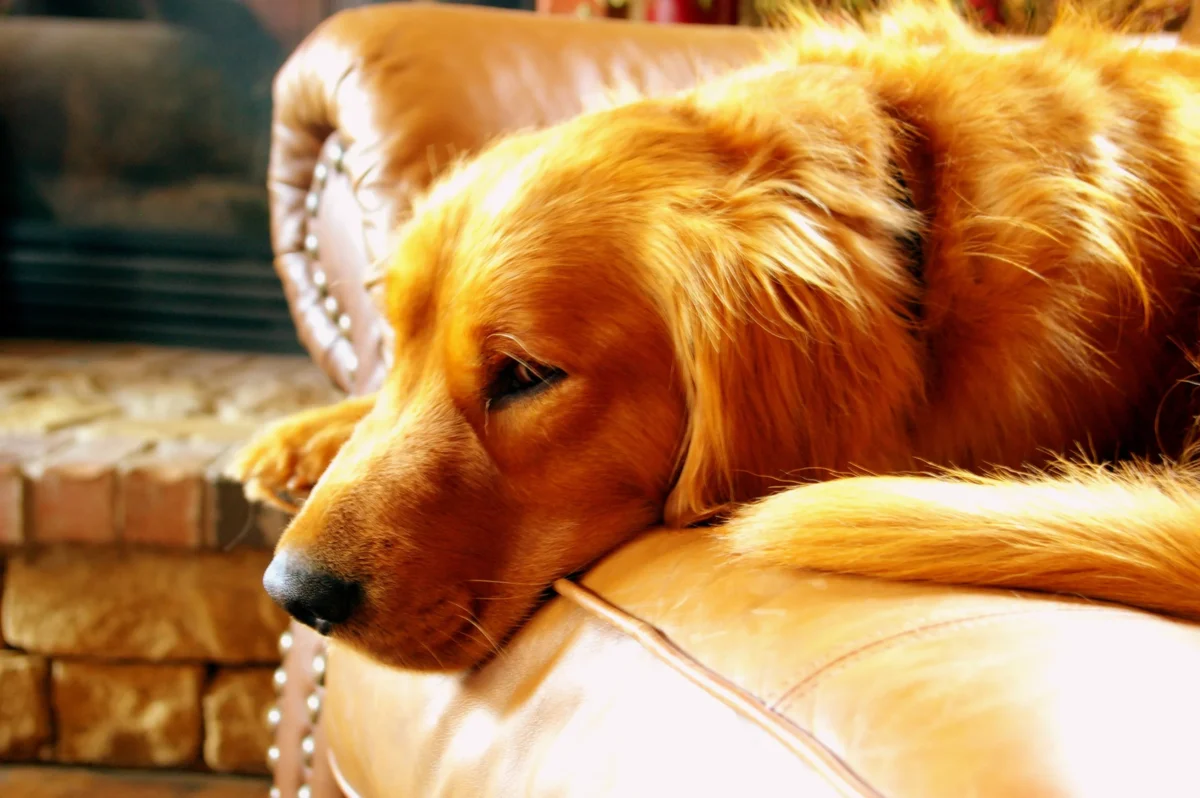Are you considering getting a golden retriever puppy but worried about their behavior? Well, let me put your mind at ease. Golden retrievers are not bad puppies, in fact, they are known for their friendly and gentle nature. In this article, we will explore the misconceptions surrounding golden retriever puppies and why they make great companions. So, if you’re curious about whether golden retrievers are truly bad puppies, keep reading to find out the truth.
If you’re concerned about golden retrievers being difficult to train, think again. These lovable pups are actually highly intelligent and eager to please. With consistent and positive reinforcement, they can be easily trained to follow commands and learn good behavior. In fact, many golden retrievers excel in obedience training and even participate in dog sports such as agility and obedience trials. So, don’t let the misconception of golden retrievers being bad puppies deter you from bringing one into your home.
Another common misconception about golden retrievers is that they are destructive chewers. While it’s true that puppies, regardless of breed, may chew on things during their teething phase, golden retrievers are not inherently more destructive than other breeds. With proper training, socialization, and providing them with appropriate chew toys, you can prevent unwanted chewing behaviors. Golden retrievers are generally eager to please their owners and with the right guidance, they can become well-behaved and loyal companions.
So, if you’ve been wondering whether golden retrievers are bad puppies, let me assure you that they are not. These friendly and intelligent dogs can be easily trained and make wonderful family pets. In the following sections, we will delve deeper into the characteristics and traits of golden retrievers to help you understand why they are such beloved companions. So, let’s debunk the myth and discover the truth about golden retrievers.
Characteristics of Golden Retrievers
As a dog lover who has owned both a golden retriever and a Goldendoodle, I can confidently say that golden retrievers are not bad puppies. In fact, they possess some wonderful characteristics that make them incredibly lovable and easy to train.
1. Friendly and Gentle Nature
Golden retrievers are renowned for their friendly and gentle nature. They are known to be affectionate and get along well with people of all ages, including children and strangers. Their loving and patient demeanor makes them excellent family pets.
2. Highly Intelligent
Golden retrievers are highly intelligent dogs. They are quick to learn and are eager to please their owners. This intelligence makes them easy to train and well-suited for various activities, such as obedience training, agility, and even therapy work.
3. Eager to Please
One of the most remarkable traits of golden retrievers is their innate desire to please their owners. They thrive on positive reinforcement and will go to great lengths to make you happy. This eagerness to please makes training a golden retriever a joy and helps in establishing a strong bond with them.
4. Loyal Companions
Golden retrievers are incredibly loyal dogs, and once they consider you a part of their pack, you can be sure they will be by your side through thick and thin. Their loyalty extends beyond their immediate family and often extends to other pets as well.
5. Social and Outgoing
Golden retrievers love socializing and enjoy being around people and other animals. They thrive in environments where they receive lots of attention and love interacting with new faces. So, don’t be surprised if your golden retriever becomes the life of the party at social gatherings!
Keep in mind that as puppies, golden retrievers may go through a teething phase where they chew on things. However, with proper training and socialization, they can become well-behaved and loyal companions.
Golden retrievers possess a unique set of characteristics that make them incredibly special. Their friendly nature, high intelligence, eagerness to please, loyalty, and social skills make them excellent additions to any family. So, if you’re considering adding a golden retriever to your life, you can be confident that you’re getting a fantastic companion.
Understanding Puppy Behavior
When it comes to owning a golden retriever or a Goldendoodle, understanding puppy behavior is crucial. Puppies, regardless of their breed, go through developmental stages where they may exhibit certain behaviors that can be challenging at times. However, with the right knowledge and approach, you can navigate these stages smoothly and nurture a well-behaved and happy furry friend.
Socialization is Key

« 7 Surprising Ways Golden Retrievers Excel as Farm Dogs – You Won’t Believe 4
Unveiling the Ultimate Guide to Scoring Budget-Friendly Golden Retrievers »
One important aspect of understanding puppy behavior is recognizing the significance of socialization. Puppies, including golden retrievers and Goldendoodles, are naturally curious and eager to explore their surroundings. Introducing them to a variety of people, animals, and environments from a young age can help them become well-adjusted and confident.
Chewing and Teething
Puppies, just like human babies, go through a teething phase. During this time, they may chew on anything they can find to alleviate discomfort. It’s important to provide appropriate chew toys and redirect their chewing behavior towards those items. This will not only save your furniture and shoes but also aid in soothing their teething pains.
Training for Good Behavior
Training your puppy is essential for shaping their behavior and instilling good habits. Both golden retrievers and Goldendoodles are highly intelligent and eager to please, which makes training them a joyful experience. Be patient, use positive reinforcement techniques like treats and praise, and establish consistent routines to help your puppy understand what is expected of them.
Puppy Energy
Puppies, including golden retrievers and Goldendoodles, have abundant energy levels. Regular exercise and playtime are crucial to keeping them mentally stimulated and physically fit. Engaging in activities such as walks, fetch, and puzzle toys will not only tire them out but also promote a strong bond between you and your furry companion.
Building a Lifelong Relationship
Understanding puppy behavior is just the first step in building a lifelong relationship with your golden retriever or Goldendoodle. Consistency, love, and patience are key ingredients to training and shaping their behavior. Remember that puppies grow into adult dogs, so starting off on the right foot will set the foundation for a well-behaved and loving companion for years to come.
Challenges of Owning a Golden Retriever Puppy
As a dog lover, you’re well aware of the joy and companionship that owning a golden retriever puppy can bring. However, it’s important to be aware of the challenges that come along with their adorable wagging tails and playful nature. Here are a few things you should keep in mind:

1. High energy levels: Golden retrievers are known for their boundless energy. They require regular exercise and stimulation to keep them happy and prevent them from getting bored or destructive. Incorporating daily walks, playtime, and interactive toys into their routine will help keep their energy levels in check.
2. Chewing and teething: Like all puppies, golden retrievers go through a teething phase where they will chew on anything they can get their paws on. This can include your favorite shoes, furniture, or even electrical cords. Providing them with plenty of appropriate chew toys and redirecting their attention when they start to chew on something off-limits is essential in helping them develop good chewing habits.
3. Socialization: Golden retrievers are social creatures and thrive on human interaction and companionship. It’s crucial to expose them to various people, animals, and environments from an early age to ensure they grow up to be well-adjusted and friendly. Enrolling them in puppy socialization classes or organizing playdates with other well-behaved dogs can help them develop good social skills.
4. Training needs: These intelligent and eager-to-please dogs are a delight to train. However, it’s important to start training early and be consistent in your approach. Basic obedience training, such as sit, stay, and recall commands, will help you establish boundaries and ensure your golden retriever grows into a well-behaved companion.
5. Grooming requirements: Golden retrievers have a beautiful, thick coat that requires regular grooming. Regular brushing, especially during shedding seasons, will help keep their coat healthy and prevent mats and tangles. Additionally, occasional baths and regular nail trims are essential for their overall well-being.

Training Tips for Golden Retriever Puppies
When it comes to training your golden retriever puppy, consistency and positive reinforcement are the keys to success. Here are some training tips that will help you raise a well-behaved and obedient furry friend:
1. Start Early – Begin training your golden retriever puppy as soon as you bring them home. Puppies have a critical socialization period between 8 and 16 weeks of age, so exposing them to new experiences and people during this time is crucial.
2. Use Positive Reinforcement – Rewarding good behavior with treats, praise, and playtime is the most effective way to train your golden retriever puppy. Positive reinforcement helps them understand what behaviors are desirable and encourages them to repeat those behaviors.
3. Be Patient – Remember that puppies are like children and they take time to learn. Be patient and understanding during the training process. Avoid using punishment or harsh methods, as they can damage the bond you have with your puppy.
4. Socialize Your Puppy – Golden retrievers are social dogs by nature, so it’s important to expose them to different people, animals, and environments. This will help them develop good manners and become well-adjusted adults. Take them for walks, visits to the park, or enroll them in puppy socialization classes.

5. Teach Basic Commands – Start with basic commands like “sit,” “stay,” and “come.” Use consistent hand signals and verbal cues to help your golden retriever puppy understand what you want them to do. Practice these commands in different settings to reinforce their obedience.
6. Manage Puppy Energy – Golden retrievers are active dogs and need plenty of exercise to burn off their energy. Regular walks, playtime, and mental stimulation through interactive toys or training sessions will help keep your puppy happy and prevent destructive behavior.
7. Consistency is Key – Establish a consistent routine for your golden retriever puppy. This includes regular feeding times, potty breaks, and training sessions. Consistency helps them understand what is expected of them and promotes good behavior.
Remember, training your golden retriever puppy is a lifelong process. It requires patience, love, and commitment. By implementing these training tips, you can set your furry friend up for a lifetime of good behavior and a strong bond with you. Keep in mind that each dog is unique, so be flexible and adapt your training methods to suit your puppy’s individual needs
Finding the Right Balance
When it comes to owning a golden retriever or a Goldendoodle, finding the right balance is essential. These lovable and intelligent breeds require a mix of training, exercise, socialization, and love to thrive. As a dog lover who has owned both breeds and worked in animal shelters and veterinary offices, I can offer some insights into finding that perfect balance for your furry friend.

First and foremost, understand the importance of socialization. Both golden retrievers and Goldendoodles are social animals and thrive when they have positive interactions with other dogs and humans. Expose your puppy to different environments, people, and animals to help them become well-rounded and confident. Puppy socialization classes and regular outings to dog parks are excellent ways to achieve this.
Next, focus on positive reinforcement training. Both golden retrievers and Goldendoodles are highly intelligent and eager to please, making them ideal candidates for positive reinforcement-based training methods. Reward good behavior with treats, praise, and affection, and avoid using punishment or harsh training techniques. Remember to be patient and consistent in your training efforts, as it may take some time for your puppy to fully grasp new commands or behaviors.
Managing your puppy’s energy is also crucial. Golden retrievers and Goldendoodles are energetic breeds that require regular exercise to stay healthy and content. Engage in daily exercise routines, such as long walks, playtime in the backyard, or interactive games like fetch. A tired puppy is more likely to be well-behaved and less prone to excessive chewing or destructive behavior.
Lastly, building a lifelong bond with your golden retriever or Goldendoodle is essential. These breeds are known for their loyalty and love for their human companions. Create special moments with your puppy through activities such as training sessions, cuddle time, and quality playtime. A strong bond will not only enhance your relationship but also contribute to your puppy’s overall well-being and happiness.
Remember, finding the right balance for your golden retriever or Goldendoodle is an ongoing process. Each dog is unique and may have varying needs. By understanding the importance of socialization, focusing on positive reinforcement training, managing your puppy’s energy, and building a lifelong bond, you’ll be well on your way to raising a well-behaved and happy furry friend.

Conclusion
Owning a golden retriever or Goldendoodle can be a wonderful experience. These lovable and intelligent puppies have a lot to offer as loyal companions. While they may have their teething phase and chew on things, with proper training and socialization, they can become well-behaved and happy members of your family.
Understanding puppy behavior, including the importance of socialization, training for good behavior, managing their energy, and grooming requirements, is crucial for nurturing a well-behaved furry friend. Training golden retriever puppies involves starting early, using positive reinforcement, and being patient. It’s also important to socialize your puppy, teach them basic commands, and maintain consistency.
Remember that training is a lifelong process that requires love, patience, and commitment. Each dog is unique and may have varying needs, so it’s important to adapt your training methods to suit your puppy’s individual needs.
By finding the right balance of socialization, positive reinforcement training, managing their energy, and building a lifelong bond, you can raise a well-behaved and happy furry friend. So, embrace the journey of raising a golden retriever or Goldendoodle and enjoy the unconditional love and companionship they bring to your life.







